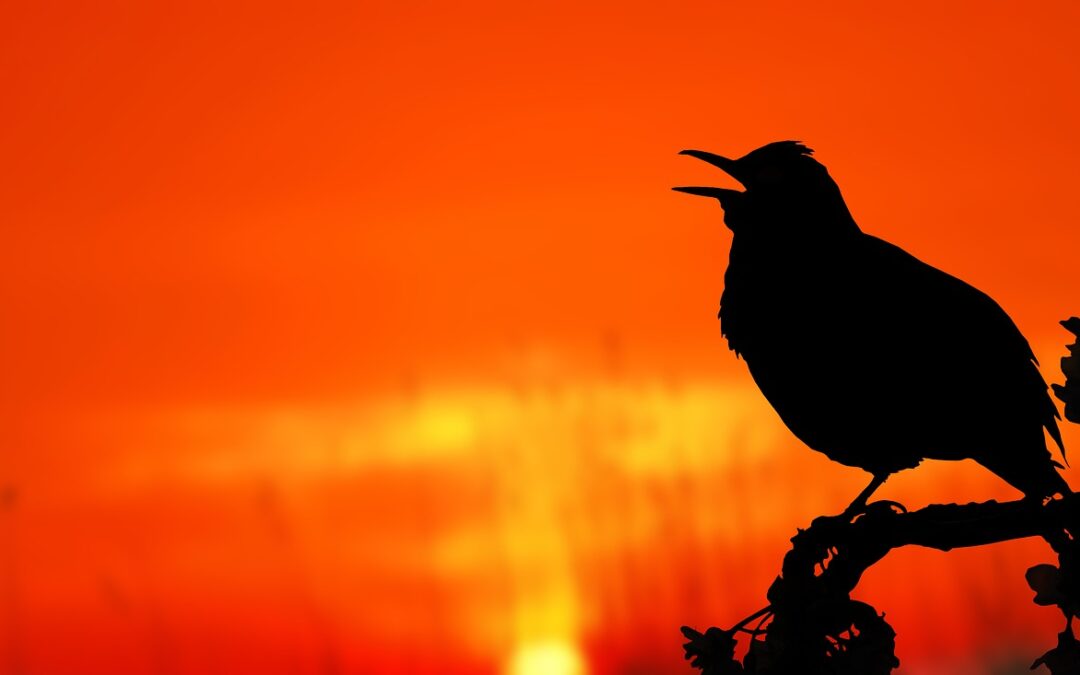Blackbird singing in the dead of night
Take these broken wings and learn to fly
All your life
You were only waiting for this moment to arise.
– From “Blackbird” by The Beatles
So begins one of my favorite songs. I’ve loved it ever since the first time I heard it as a little girl. From the beauty of the melody to the simple combination of a voice and guitar to the inspiring message of hope. Hope for someone who’s been broken in body and spirit, and has nothing more to lose.
“Broken” is a good description of what I became in September 2009 in the wake of my 4-year-old daughter’s death.
My body still worked and my mind still functioned. Out of necessity, I went back to work and back to the everyday tasks of raising three other children. But behind that façade of normalcy, I found myself not just suffering a broken heart, but a broken spirit. Living in a broken world that had failed to follow the laws of nature, I had become the blackbird in that beautiful song. Unable to function in the world around me in the way I once did.
In my experience, once I became broken in a public way, I began to discover other broken people around me. While I sought some of them out in support groups, I found that sometimes they sought me out.
In my local community, it was as if my daughter’s death was a key that had unlocked a door that hid people’s secret identities.
Acquaintances I knew – but knew little about – suddenly trusted me with stories of their deepest heartbreak and despair. But why?
In my opinion, we live in a society that idolizes winners and treats losers with disdain. Think of the endless reality shows where we vote for the best and ever so quickly forget those we didn’t think were good enough. I look around and see so many people feeling pressured to show the world they are winners too. They work very hard to try to get the prized job with a big salary.
It doesn’t seem to matter that it often means they must sacrifice every last ounce of their free time or family time. I see endless commercials encouraging people to buy things to show their winning nature. Media promotes big houses, expensive cars, and the latest and greatest technology or gadgets that will cost a small fortune, but be out of style within months. Our societies tend to glamorize the rich and famous, while marginalizing just about everyone else.
In such a world, how could we expect anyone to willingly acknowledge they were broken?
I have witnessed first-hand the cruel judgmental attitudes and reactions of disdain or pity which make broken people feel even more broken. So, I see these broken people do the best they can to put on a façade of “winning” strength to the outside world while desperately trying to tend to their devastating wounds in the “dead of night”.
Back to the question of why these people suddenly trusted me to be witness to their broken souls? If I had to guess, it would be this: because they felt it was safe to. They had learned this basic truth about “broken” people: they can be some of the kindest, most compassionate people you will ever meet.
Blackbird singing in the dead of night
Take these sunken eyes and learn to see
All your life
You were only waiting for this moment to be free.
What inspires this kindness and compassion? Why do so many “broken” people say they have a new understanding of what is important in their lives? In my experience, it is the result of feeling the weight of a pain so cruel and so unbearable it left me with “sunken eyes.”
These “sunken eyes” no longer allow me to see the world in the way I once did.
It took a lot of time and painful effort to learn to see clearly with my sunken eyes. With significantly reduced vision, I was forced to focus only on things essential to my very survival. In my case, it was to focus on love, my relationships with those I loved, on being honest and true to myself, and being free once and for all from the limiting thoughts that kept me tied to the world I once lived in where I never felt good enough.
My reduced vision tends to mostly block out the things I once thought I needed to be happy. I no longer feel pressure to earn as much money as I once thought I should. Or see any reason to spend time in a job that my heart isn’t in if it means reducing the precious time spent with my family. It has led me to see that money and material things will never bring any sort of worth or importance to my life.
If I am forced to live the rest of my life without my daughter, I want it to be a life filled with purpose and meaning.
My vision is focused on how I can promote my own healing and growth by using my natural strengths and skills to help others. I have found that many broken people I’ve met have the same or similar vision. In feeling compelled to help others, we develop a new understanding of and capacity for compassion and kindness.
Blackbird fly
Blackbird fly
Into the light of the dark black night.
I am no longer afraid to show the world I am broken. I will sing my song out loud in the dead of night and the light of day if it means I can show other broken people there is hope when they see none. If I can learn to fly with broken wings, anyone can.
What is my secret? I have learned to focus less on the overwhelming pain of her death and more on the profound love my daughter brought to my life in her four short years. I focus on the unending love I feel for her. That love becomes a beacon of light in the dark black night of grief…and I will follow it wherever it may take me.



 This website was inspired by the memory of Margareta Sol Kubitz in hopes of helping others work through the pain of grief.
This website was inspired by the memory of Margareta Sol Kubitz in hopes of helping others work through the pain of grief.